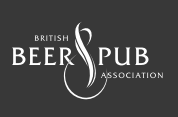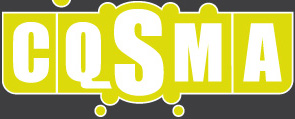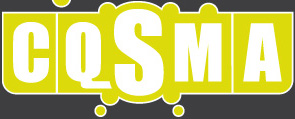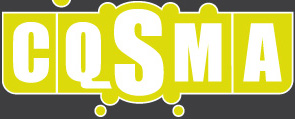Title Page
-
Client / Site
-
Conducted on
-
Prepared by
-
Location
-
Personnel
-
Pub security needs to be regularly reviewed and all procedures, routines and business sensitive information must be kept confidential.
It is important to not have a set routine when it comes to high risk tasks such as transferring Cash through the pub and putting bins out.
Externals
-
Check external lighting is working and has not been tampered with, pay attention to delivery and entry/exit routes.
-
Is the final exit point well lit? If not can any additional lighting be added?
-
Is it safe leaving the final exit door and is it covered by CCTV?
-
Does the external delivery doors have a spy hole fitted and appropriate signage displayed?
-
Staff to work in pairs and carry a personal attack alarm when performing external checks at night.
Front of House
-
The duty manager must check the ID of any person wishing to enter the premises out of hours, or enter Back of house areas at any time, and confirm the reason for the visit. <br>Maintenance visits must be checked against WISDOM to confirm validity<br>All head office employees will carry ID with them when visiting a pub
-
Is the duty manager carrying a personal attack alarm on their person when working in the pub alone?
-
Employees must carry personal attack alarms when working on the floor during peak times, especially Friday and Saturday nights. <br>Ensure the attack alarm is locked to prevent false activation. To operate - push the safety button up to unlock, then press the 2 Orange buttons together.
-
Are staff aware of the locations of the fixed panic alarms and how to activate them?<br>To activate press the 2 red buttons together. To reset the alarm following an incident Place the key in to fixed panic alarm and turn until the buttons release.
-
Does the pub require body cameras?
-
If applicable are body cameras available, fully charged and in use where required?
-
If transferring Cash throughout the Customer area during trading hours:
Vary the times and routes of Cash movement
Ensure another employee or member of the door staff is present to accompany the duty manager
Carry a personal attack alarm at all times
Ensure that Cash is secured and transferred discretely
Cash must not be counted in view of the public
Back of House
-
Are staffs personal belongings stored in lockers?<br>If lockers are not available valuables must be kept in the office until the end of shift.
-
Are back of house storage areas, including the cellar and spirit cupboard, locked when not in use?
-
Has the combination locks on BOH doors code been changed since last change of management or following a security breach?
Office
-
Does the office door have a spy hole fitted and appropriate signage displayed?
-
Is the office door being locked when not in use and during cash handling?
-
Are all pub and safe keys kept in a locked digisafe when not in use?
-
Is the CCTV working and all cameras recording images for 31 days?
-
Is there a personal attack alarm available?
-
Has the combination lock had its code changed since last change of management or following a security breach?
-
Is the secom key holder list up to date?<br>Once updated the email must be deleted from the outlook sent items and from the deleted items folder. Any paper copies must be shredded.
-
Is the fixed panic alarm reset key stored in a locked key cabinet in the office?<br>Replacements can be ordered via Secom
End of night procedures
-
Employees must not let anyone, including off duty employees, into the pub outside of trading hours or into Back of house without consulting the duty manager.
-
All areas of the pub, including toilets and void areas, being checked that they are free of customers prior to setting the alarm?
-
AWP machines to be switched off prior to leaving the premises and AWP guards must be fitted where applicable.
-
If taking bins out after close. Employees must work in pairs and carry a personal attack alarm. Check though spy holes before opening external doors. <br>Try to change the routine of putting the bins out
-
Does the pub have a “walk test” setup on the alarm? If not and believe is required discuss with the RM. <br>
-
All window and doors to be locked before setting the alarm.
-
Alarm sensors and PIR detectors must be checked before setting the alarm.
-
If unable to set the alarm, an emergency callout must be logged with SECOM and remain on site until an engineer attends and the alarms can be set correctly.
The police must be called if any suspicious activity is noted or PIR detectors appear to have been tampered with.
Ensure no POS or decorations obstruct any of the PIR sensors. -
It is the responsibility of the duty manager who secures the building at the end of the days trade (closing manager) to respond to any intruder alarm activation outside of trading hours.
The closing manager must be available to receive any potential phone call from Secom, and must therefore ensure that their mobile phone is switched on and within earshot.
If the intruder alarm is tampered with, all employees on the secom key holder list for the pub will receive the following text message to their mobile phone: “This is from Secom PLCThe alarm system at [PUB NAME], [PUB ADDRESS] has sent a Tamper Alarm alarm at XX:XX AM. Please note that this text message has been sent to all keyholders, please check the alarm panel when convenient.Secom PLC”.
Upon arrival at the pub, if it is evident that security has been breached I.e. a break-in, then employees must not enter the building and must contact the police for assistance. -
Remain by the final exit door until the alarm tone ceases. This confirms successful activation.
-
All the closing team should leave together. If employees are getting taxis, have them ready and waiting outside before setting the alarm.
-
If you believe the pub is at risk discuss with the RM and Secom
-
Select date
-
Add signature
-
Add signature










